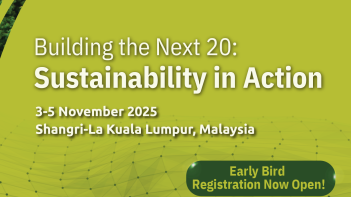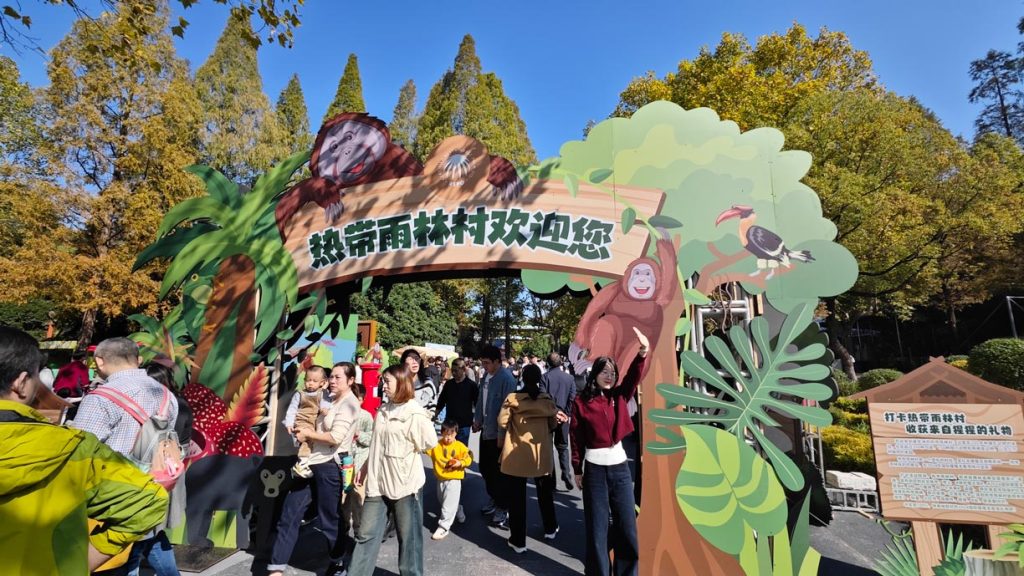
Themed “Orangutans Leading the Way: One Planet, One Future,” International Orangutan Caring Week 2024 officially kicked off at Nanjing Hongshan Forest Zoo on 10 November 2024. To commemorate the occasion, the Roundtable on Sustainable Palm Oil (RSPO) partnered with Hongshan Forest Zoo to launch the event and set up a “Rainforest Village” on-site, designed to raise public awareness of sustainable palm oil and wildlife conservation through a variety of educational and interactive activities.
The kick-off event, organised by Hongshan Forest Zoo in collaboration with its partners, offered visitors a memorable experience. Guests had the rare chance to meet the “forest people” up close, while enjoying a vibrant forest-themed musical performance, an engaging story-sharing session about orangutans, and an art exhibition featuring creations by Hongshan Zoo’s resident orangutans.
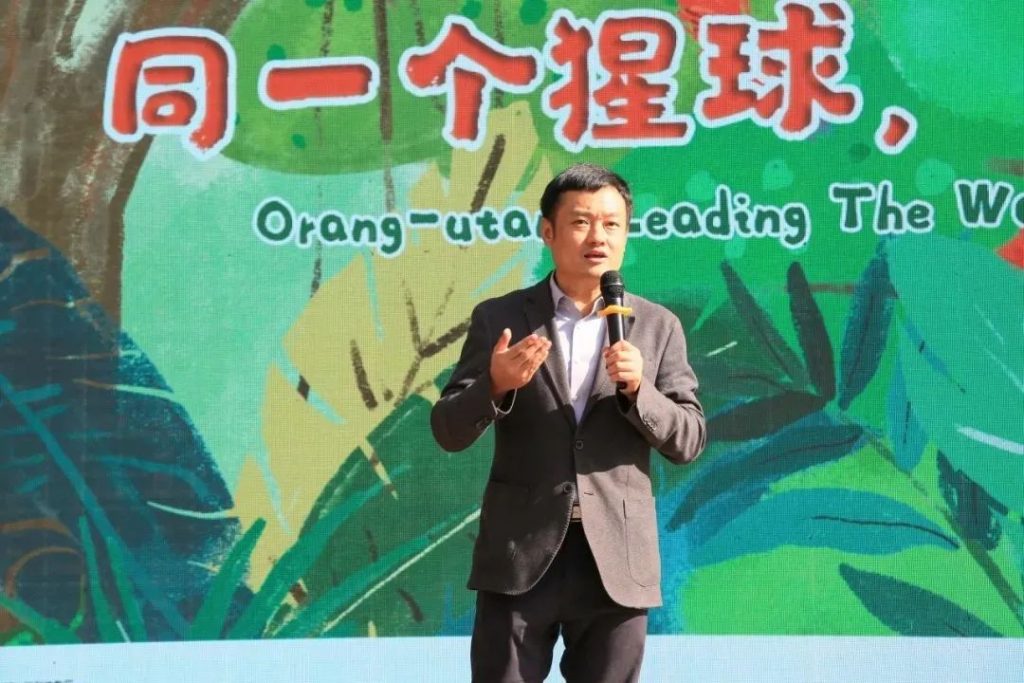
“The threat to orangutans as a critically endangered species comes mainly from habitat destruction due to unsustainable expansion of land for the production of oil palm and other commodities,” said Fang Lifeng, RSPO Head of China, at the launch ceremony. He also explained that the RSPO has established a set of Standards to address this challenge, aiming to ensure the sustainability of oil palm cultivation, processing and palm oil trade. He further called on the public to choose sustainable palm oil products in their daily lives to protect orangutans and their habitat.
During the event, Hongshan Forest Zoo showcased the comic strip series “Forest Man Since Childhood” at the zoo’s Central Square. The series, featuring orangutans, vividly depicts life in the tropical rainforest, presenting their story in a way that is both engaging and easy for children to understand. One chapter, “Protecting the Forest Home”, emphasises a crucial strategy for safeguarding orangutans and their habitat—by choosing sustainably produced products.
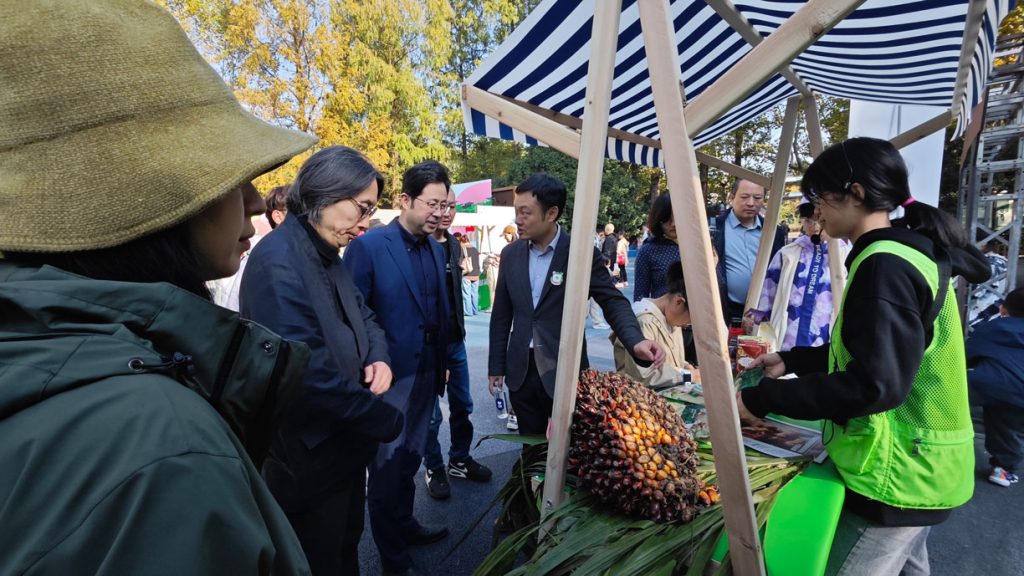
Visitors not only gained insight into the habits and unique characteristics of orangutans but also became aware of how their daily choices can directly influence the future of this endangered species. At the Rainforest Village booth, one participant, upon seeing real palm fruits for the first time, learned that these fruits are processed into palm oil, an ingredient found in over half of all supermarket products. She remarked that the experience inspired her to start choosing products with the RSPO Trademark, recognising that sustainable consumption can help protect both orangutans and their rainforest home.
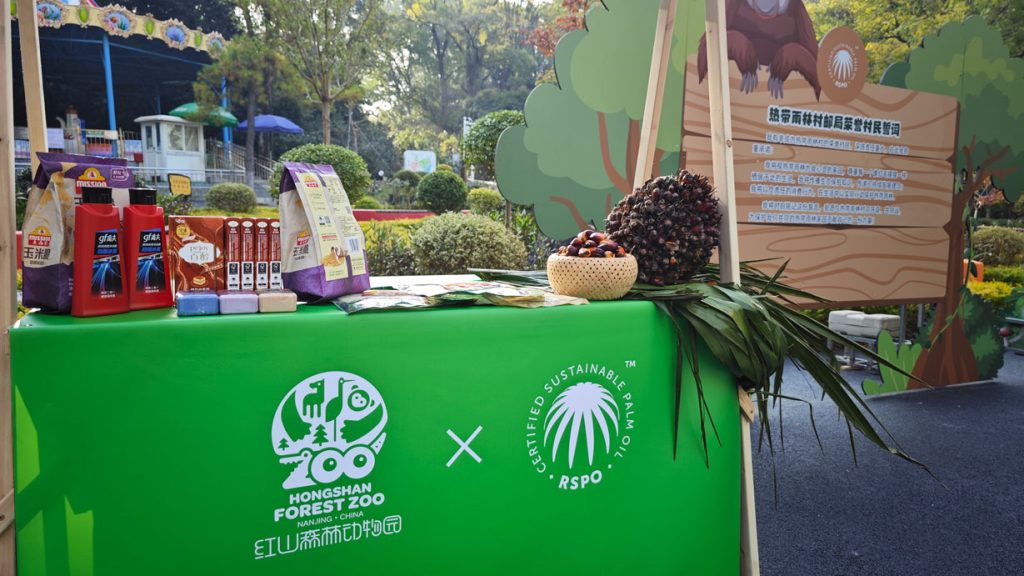
Another primary school teacher who participated in the “Rainforest Village” interactive activity shared that while she had noticed palm oil in supermarkets, she had never made the connection to orangutan conservation. Through her involvement in this event, she gained a deeper understanding of responsible consumption and its significance. She expressed her intention to bring this knowledge into her classroom, hoping to teach her students more about the impact of human production activities on biodiversity conservation.
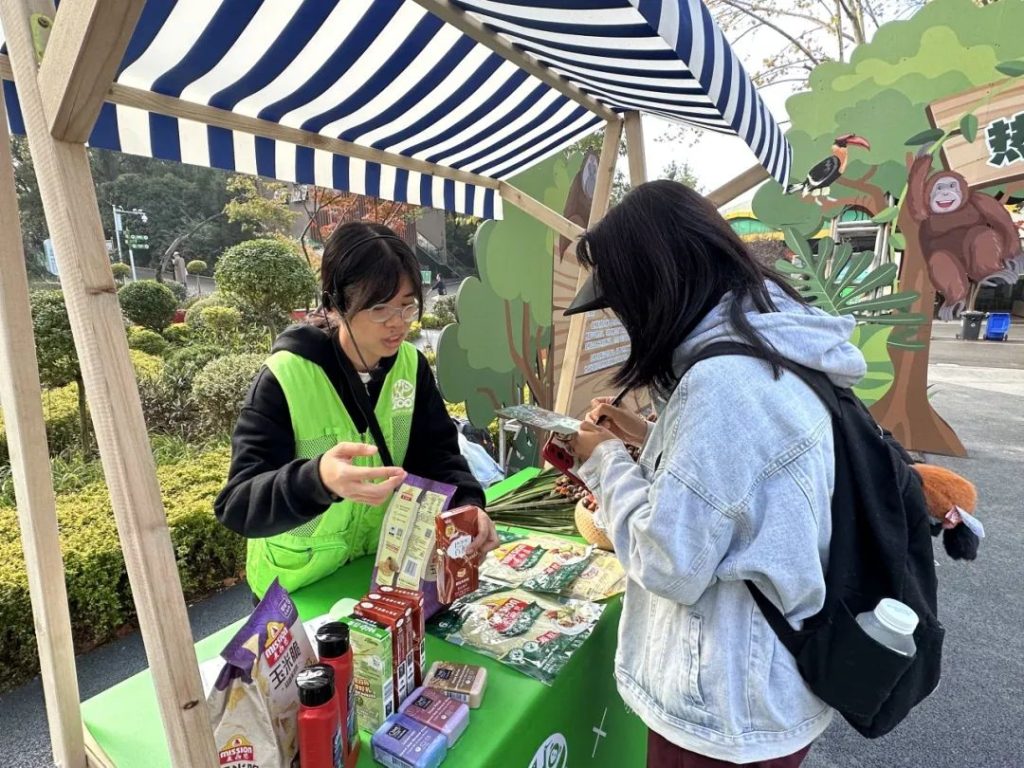
Palm oil is the world’s leading vegetable oil, with 85% of global production coming from Malaysia and Indonesia. These countries are not only key producers of palm oil but also home to vital tropical rainforests rich in biodiversity. However, the high demand for palm oil has driven many growers to clear rainforests by cutting down trees and setting fires to make way for oil palm plantations. This widespread deforestation poses a severe threat to the entire ecosystem, with orangutans—one of the most iconic species—being particularly at risk.

Palm oil plays a crucial role in human life, but its production in tropical regions should not come at the expense of plant and animal diversity. As a global initiative dedicated to promoting the sustainable development of the palm oil industry, RSPO has established comprehensive standards for sustainable palm oil. These standards require its members involved in the cultivation, production, and processing of palm oil to adhere to RSPO’s criteria. By implementing these standards, the RSPO aims to minimise the negative environmental and social impacts of palm oil production, while enhancing the positive contributions of sustainable palm oil to local economies, the livelihoods of workers, and the surrounding environment.
Visitors to the Rainforest Village are inspired to feel a personal connection and responsibility to protect both orangutans and the rainforest. Choosing RSPO Certified sustainable palm oil is not only a responsible choice for companies in their production processes but also for individuals in their consumption habits. By selecting products that contain certified sustainable palm oil, they contribute to the protection of the rainforest and the preservation of orangutans.
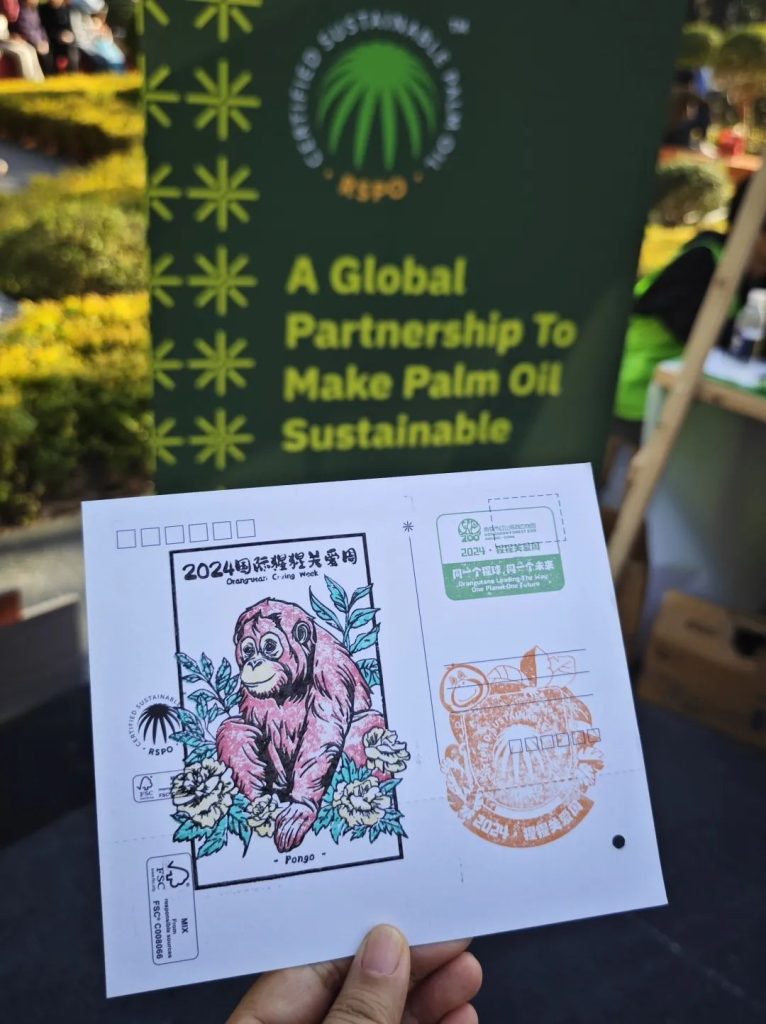
At the end of the event, participants wrote postcards and placed them in a special post box within the “Rainforest Village.” These postcards, to be delivered by “orangutan mailmen,” will reach stakeholders living in palm oil-producing areas of the rainforest, carrying messages of hope for the protection of both the rainforest and orangutans. The RSPO will also continue collaborating with industry partners to safeguard wildlife, particularly endangered species, as a key part of advancing the sustainable development of the palm oil industry.
Keep reading
RSPO accepted in the Netherlands as a private control system for EUDR
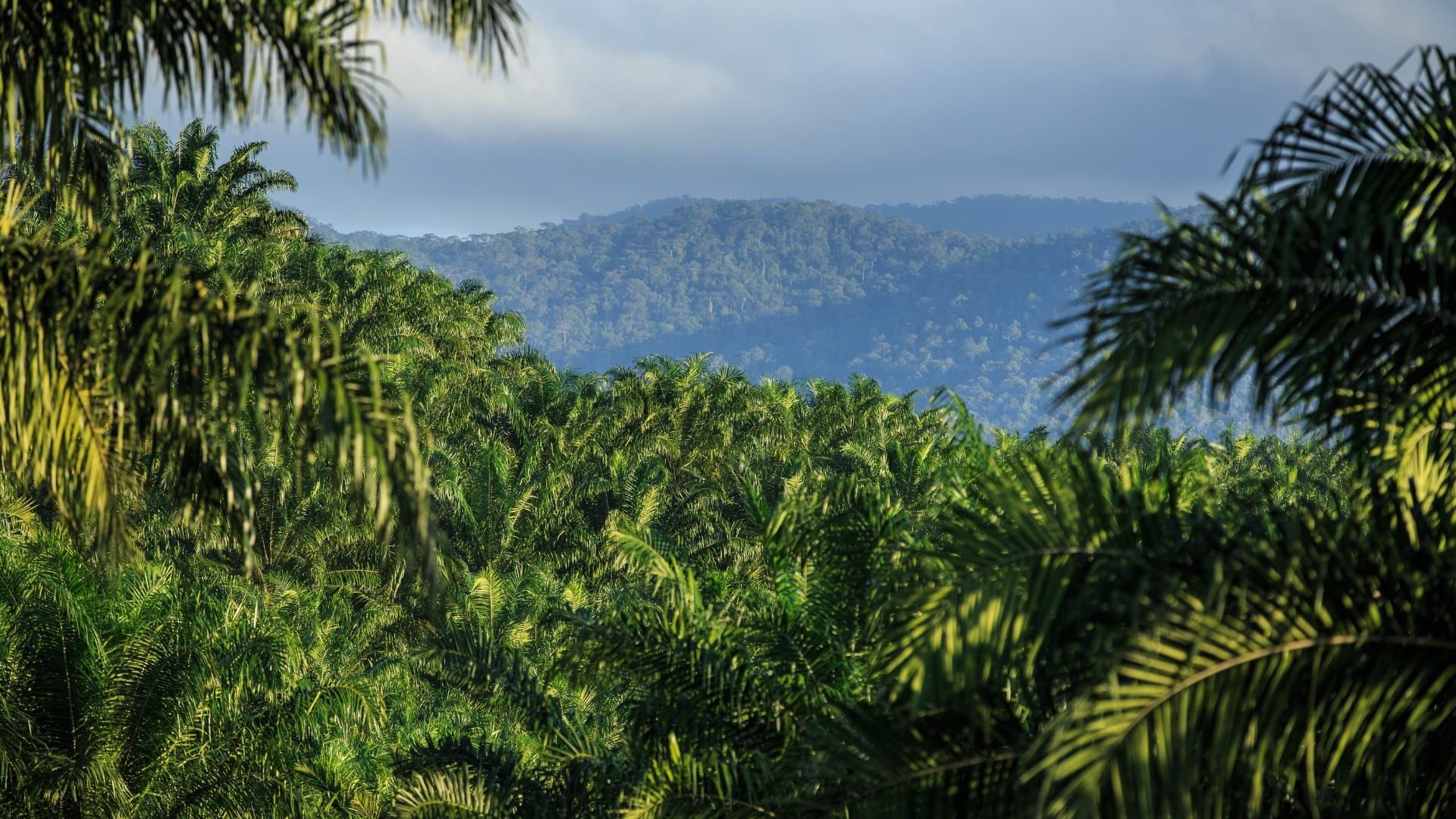
RSPO x JaSPON Conference and Member Engagement Forum 2025 Spotlights Japan’s Sustainability Success and Market Growth
Call for Expression of Interest: Independent Investigation of a Complaint
Call for Expression of Interest: Mexico National Interpretation Task Force for 2024 RSPO Principles and Criteria (RSPO P&C) and Independent Smallholder (ISH) Standard
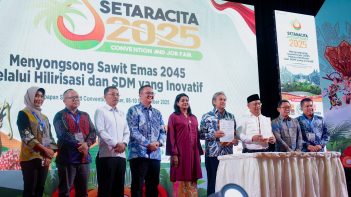
RSPO–APKASINDO Partnership to Boost Inclusive Growth, Certification, and Market Access for Oil Palm Smallholders

Open Letter to COP30 President: Integrating Forests and Biodiversity: A Policy Central to Paris Agreement Success

Bridging the Auditing Divide: Key Takeaways from the RSPO Assurance Forum 11

Extension of RSPO Excellence Awards 2025 Submission Deadline!
